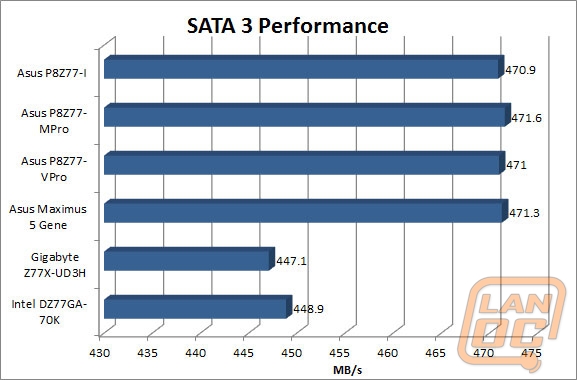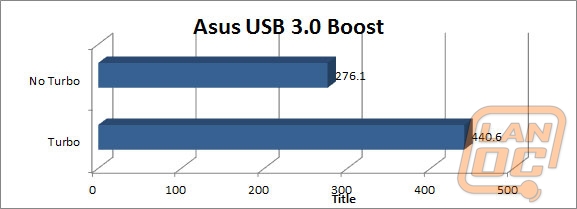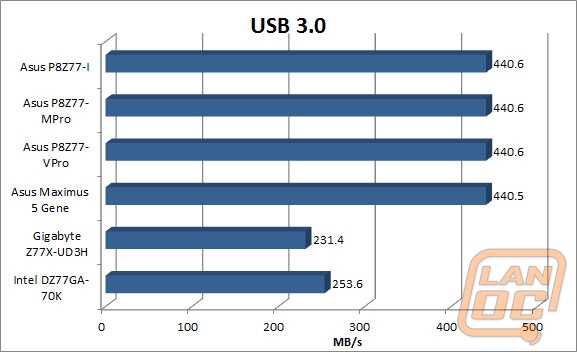USB 3.0 and SATA benchmarks
To put each boards SATA performance to the test we ran Crystal Disc Mark on each boards SATA 3 port with our Corsair Force GT SSD. It is very interesting to see how far ahead every result is in comparison to the other boards tested, especially seeing as how all of the benchmarks are done using the Intel Z77 SATA 3 port using the Intel driver. I would love to know what Asus it doing to inch out that extra performance.

For our USB 3.0 performance I have two graphs. The first graph is showing the difference between running USB 3.0 normally on an Asus board vs. turning on Asus’s USB 3.0 Boost. It’s amazing to see the improvement they are able to get by changing the way that data is handled. We are seeing numbers well above what USB 3.0 should be capable of doing. They accomplish this using UASP Mode. UASP Mode opens up multiple simultaneous commands where BOT (the normal interface) is only capable of one at a time. In our testing we weren’t even able to see the full capability’s because we only saw “turbo” mode not full UASP mode, but even then we saw close to the full capabilities of our SATA 6 SSD. For more information on USB 3.0 Boost check out THIS link for info direction from Asus.

Our second set of results show each Asus board as well as the other boards tested running at their fastest USB 3.0 speeds. So in this case we are using the USB 3.0 Boost, as would anyone in their right mind if given the choice. Having said that, if you look at the previous graph you can see the non-turbo numbers and they are still noticeably higher than the other boards’ results.


